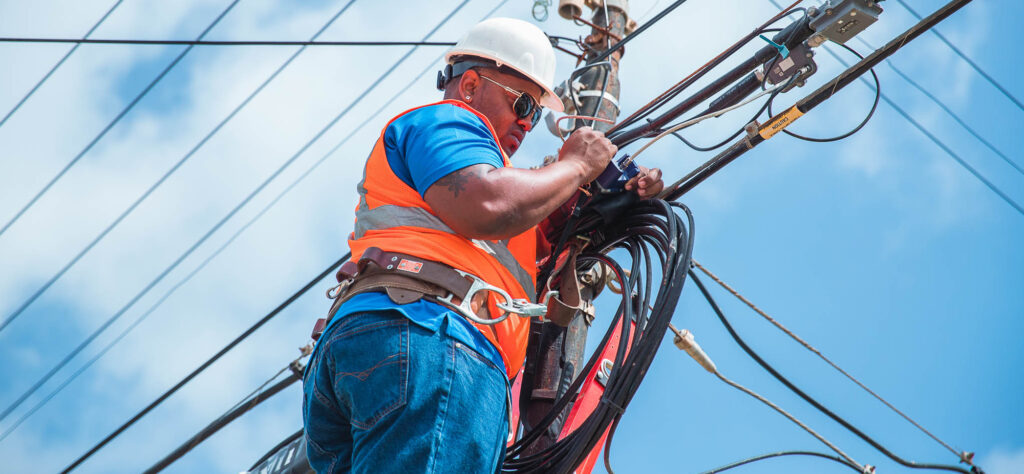

Leading communications and entertainment company, Flow Jamaica is demonstrating its commitment to fostering innovation and technological advancement in the country and across the region, in keeping with its mission to connect communities, businesses and individuals to the digital world.
“This is really the heart of our business and through the work that we do, we’re connecting families with their loved ones; people to their jobs; students with education opportunities; enabling businesses to operate more efficiently, and generally, unlocking potential and opportunities in the online space,” said Stephen Price, Vice President and General Manager, as he shared on the topic: Flow’s response to the increase in the demand of remote work and school life driven by the COVID-19 pandemic, during the recent Jamaica Institution of Engineers (JIE) Week Conference.
Flow increased its subsea capacity, acquired additional spectrum as well as increased its mobile core capacity to better meet the overall demand on its network during the pandemic.
The focus on bolstering and expanding its network which started before the pandemic, continued with the company investing over J$40 billion to aggressively build its fibre network into communities, to residential and commercial developments, businesses, and schools while adding more mobile LTE sites and expanding existing ones.
Price shared that the company has continued to invest in cutting-edge technology and infrastructure to support the growth of the science, technology, engineering and mathematics (STEM) sector in the Caribbean with its extensive network which includes four subsea fibre landing points in Jamaica, and fibre throughout the island. This has enabled the expansion of high-speed internet access, data centres and cloud services, enabling businesses to thrive and learning institutions to expand their interest in the area.

In its bid to further bridge the gaping digital divide, Flow led the first public-private partnership to provide connectivity and digital training to low-income households through its programme, Jump, which was launched in October 2022. Anchored on the three pillars of Connectivity, Devices and Skills Training, Jump was developed to foster greater digital inclusion across Jamaica providing families, identified through the Programme of Advancement Through Health and Education (PATH), with an HP Chromebook, high-speed connectivity, and digital skills training for a subsidised cost of J$800 per month. During the pilot phase of the programme, close to 1800 households were connected to the Flow network. Jump is expected to be fully rolled out by April next year.
According to Price, more than 200,000 households could be impacted by Jump if the aim is to support the next generation of future leaders.
“We must be focused on the future we want to create, the digitally empowered region we want to build and the legacy we must leave for future generations. We are dedicated to empowering our communities and driving the region’s digital evolution,” he remarked.
Earlier, in his opening address, Finance Minister Dr Nigel Clarke pointed to efforts by the Government to increase the number of STEM graduates and engineers in the country.
“We are placing greater focus on the development of STEM and filling the need for thousands more STEM graduates and engineers in Jamaica. We will redouble our efforts to ensure that Jamaica produces no less than 3,000 each year,” Minister Clarke said.
Michael James, a mechanical engineer and graduate member of the JIE is of the view that funding STEM and providing more avenues for employment for young persons to get jobs in STEM are paramount.

“It’s a good thing to train more young people in STEM, but when they graduate, they also need to be assured that they will get jobs,” he shared. James added, “There is always room for extraordinary engineers and there also needs to be a cultural shift to tailor STEM education for children at the earlier levels of the education system.”
His colleague engineer, Kishawna Bell, felt that increasing the number of persons involved in STEM was a good move even as she encouraged more women to enter the sector.
“We do need more women in STEM and increasing the number of persons involved will also increase their ability to reason and think,” she opined.







Comments